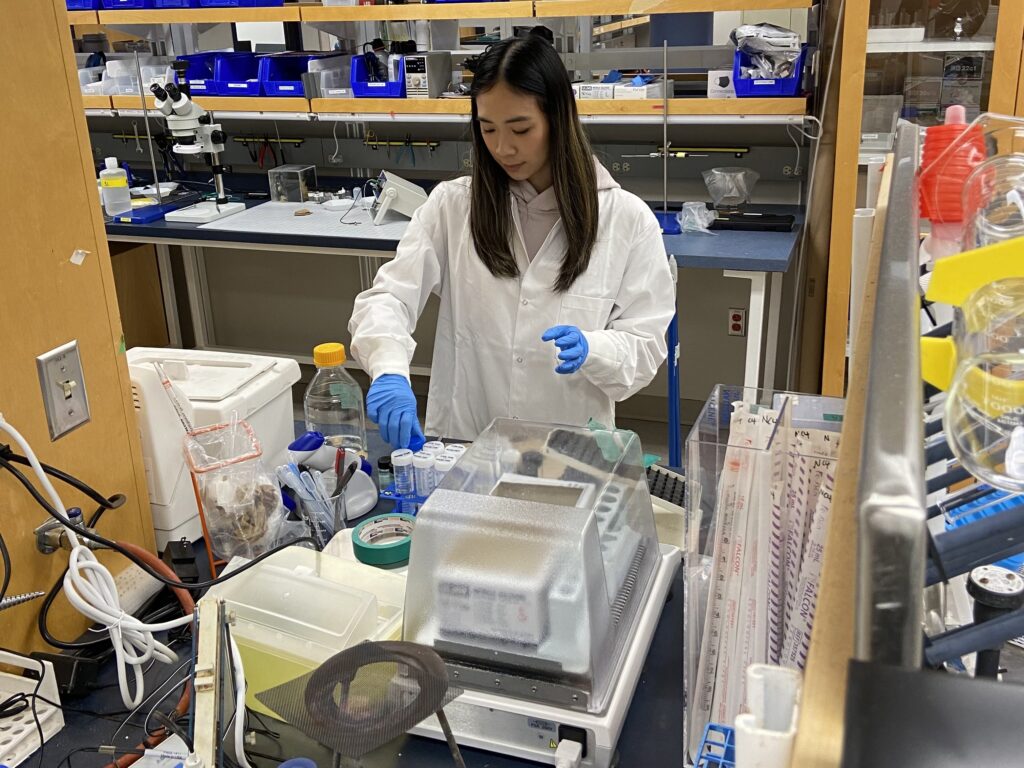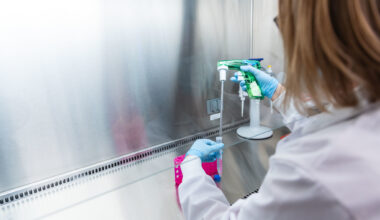Jessica Jung is a fourth-year UBC School of Biomedical Engineering student who is working with Dr. Manu Madhav as part of the SBME Synergy Undergraduate Summer Research Program. We caught up with Jessica to learn more about her experience in the program.
Why did you apply to the Synergy program?
As a student in the UBC Applied Science Co-op program, I wanted to take the opportunity to gain experience in as many different fields as possible. Being in the SBME Synergy program has given me the chance to work with driven and talented individuals in the Neural Circuits for Computation, Cognition and Control (NC4) Laboratory, headed by Dr. Manu Madhav at the Djavad Mowafaghian Centre for Brain Health (DMCBH). The Synergy program also offers in-person and virtual workshops, presentations and networking events to help foster connections within academia.
What is the research project that you are working on this summer?
Our lab investigates cognitive representations in neural systems, specifically in hippocampal formation, that can help us understand the computations behind underlying navigation, planning and memory. My research project for the term entails optimizing the current AdipoClear+ and CLARITY tissue clearing protocols to optically clear whole or partial rat brain tissue, allowing for refractive-index-matching and volumetric imaging of the cleared tissue using light-sheet microscopy. These approaches are based on the removal of lipids from the tissue, and further optimization allows for the penetration of antibodies for immunolabeling of specific structures of interest within the tissue.
What are some of the skills and tasks that you are learning while in the lab?
Working in the NC4 lab has given me the opportunity to learn new histology techniques including the optimization of tissue clearing protocols like AdipoClear+ and CLARITY. In addition, I am also learning to use lightsheet microscopy. Along with the technical skills gained at the NC4 lab, I have been learning about the neuroscience field through our journal club discussions. Every week during group meetings, one of the lab members presents a paper that we then dissect and discuss. I am learning new concepts and hypotheses by taking a deeper dive into these important publications and asking questions.
What are your future career goals?
My future career goals include working in the field of drug delivery devices because throughout my work terms, I have realized that I have a keen interest in drug delivery systems. I have learned both technical and soft skills at the NC4 lab and SBME Synergy program that can be applied to help me work toward these goals. For example, learning how to adapt and use new technologies can be useful in future workplaces.
Another career goal I have is to become an influential figure for young women entering biomedical engineering. Whether this is through creating a program for young women in STEM, speaking out about gender injustices or becoming a mentor, I hope to challenge gender norms while making a positive contribution to research.
How has this experience changed your outlook on science or research?
Being part of the SBME Synergy program has taught me what it is like to work in academia. Before this experience, I did not know what to expect or what it was like to work in academic research as my past work experiences were at companies in the research and development industry. Therefore, I have used the SBME Synergy program to further explore research in academia. I have really enjoyed my time in the SBME Synergy program at the NC4 lab as I am learning new skills and techniques and making new connections at the DMCBH, Centre for Blood Research, International Collaboration on Repair Discoveries (ICORD) and Genome Science and Technology Graduate Program (GSAT).

Jessica Jung working in the Neural Circuits for Computation, Cognition and Control (NC4) Laboratory at the Djavad Mowafaghian Centre for Brain Health.


